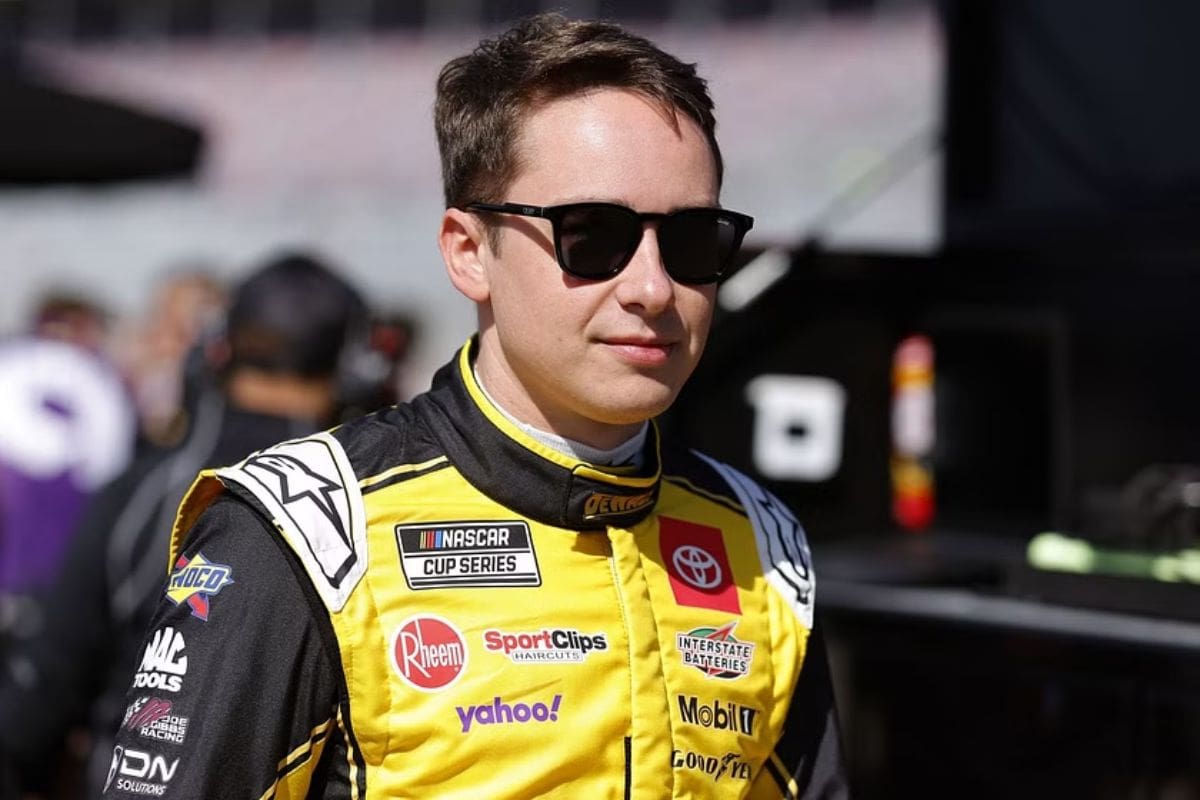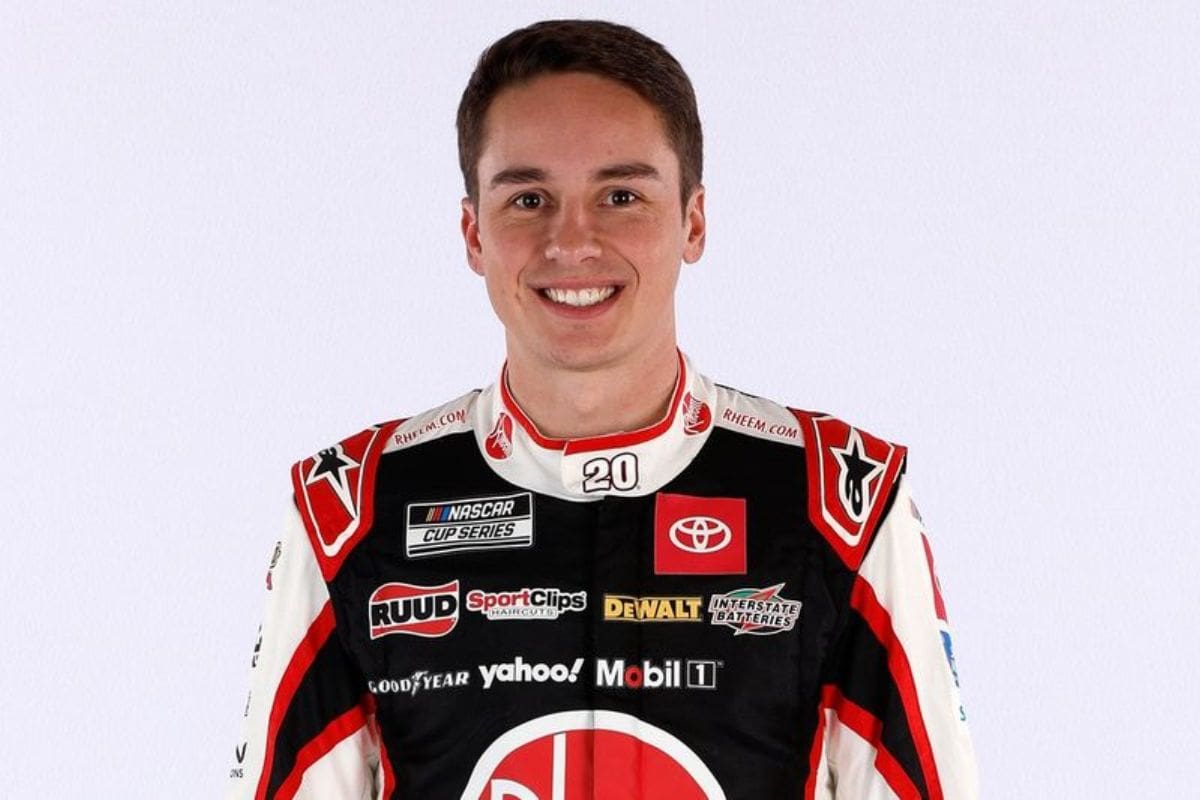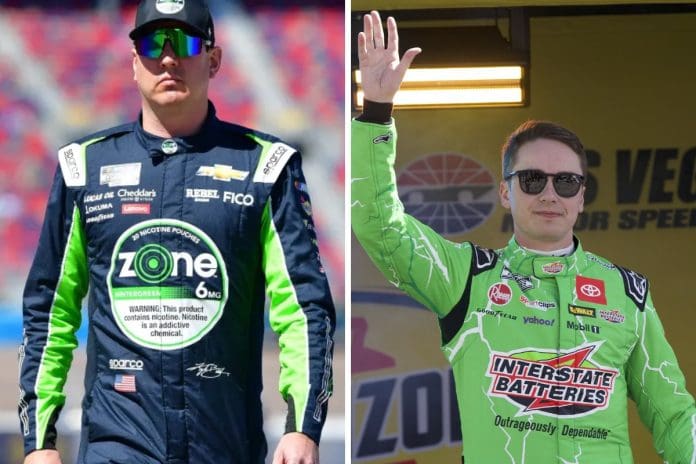Kyle Busch’s Revenge Plan Against Christopher Bell: Kyle Busch’s revenge plan against Christopher Bell is steeped in strategy and psychological warfare, following their controversial clash at COTA. The incident, marking a important moment in their rivalry, has spurred Busch to adopt a mixed approach, blending increased aggression with mental tactics. This plan, rooted in their past mentorship, aims to reclaim respect and establish dominance within the racing community. By focusing on strategic patience and detailed execution, Busch intends to outperform Bell, especially at the anticipated Richmond race. The intricate dynamics of their competition underscore the high stakes of NASCAR racing, promising an intense showdown that could redefine their standings. Further revelations will disclose the depth of Busch’s strategy.
Key Takeaways
- Kyle Busch hints at strategic patience and increased aggression in his revenge plan against Christopher Bell.
- Busch aims to demand respect and establish psychological dominance over Bell through calculated actions on the track.
- The plan involves leveraging past mentorship dynamics to unsettle Bell, hinting at a deeper psychological warfare approach.
- Anticipation builds for a showdown at Richmond, where Busch seeks his first victory over Bell amidst the brewing rivalry.
- Busch’s strategy includes outperforming Bell on the track to reinforce his standing and command respect within the racing community.
Christopher Bell’s Controversial Contact at COTA
Christopher Bell found himself at the center of controversy during the COTA race, following a contentious encounter with Kyle Busch that sparked significant debate within the NASCAR community. The incident, which involved Bell’s #20 Toyota making controversial contact with Busch, not only heightened tensions on the track but also underscored the razor-thin line between aggressive racing and unacceptable conduct in the fiercely competitive environment of NASCAR.
Bell’s maneuver, which came at a critical juncture of the race, was not merely a momentary clash but a important event that could potentially have far-reaching implications for his season. The incident was dissected from multiple angles, with experts analyzing the split-second decisions made at high speeds and the razor-edge judgment required under the intense pressure of racing. The debate centered around whether the contact was a calculated risk on Bell’s part, a misjudgment, or simply a consequence of the high stakes and high-speed nature of NASCAR racing.
The aftermath of the incident was a demonstration of the complex dynamics of driver relationships and the unwritten code of conduct that governs racing etiquette. Bell’s actions were scrutinized in the context of racing ethics, sportsmanship, and the impact of such incidents on the drivers’ standings and team dynamics. Additionally, the controversy highlighted the challenges drivers face in balancing aggression with prudence, competitiveness with fairness, and ambition with respect for fellow competitors.
In analyzing the incident, it is important to consider not only the immediate fallout but also the broader implications for Bell’s approach to racing, his reputation within the NASCAR community, and the evolving standards of conduct in a sport that thrives on speed, skill, and, occasionally, controversy.

Kyle Busch’s Reaction and Intentions
In the wake of the contentious encounter at COTA, Kyle Busch’s response was marked by a palpable sense of frustration, hinting at a calculated strategy for retribution against Christopher Bell in the upcoming Richmond race. This incident not only reopened past wounds but also spotlighted Busch’s historical penchant for not backing down from confrontations, a trait that earned him the moniker ‘Rowdy’ in his earlier days.
His reaction post-COTA was a blend of disappointment and a stern resolve, particularly directed at Bell, whom he once mentored. This situation is a vivid illustration of the complex dynamics that often characterize relationships within NASCAR, especially when mentorship evolves into rivalry.
Busch’s expressed intention to seek revenge is not merely about retribution for the COTA clash but reflects a deeper narrative of betrayal and a perceived lack of respect from a former protégé. This incident has undeniably strained their relationship, casting a shadow over their past camaraderie.
Busch’s statements post-incident are telling of his mindset; while he refrains from detailing explicit strategies for revenge, his rhetoric suggests a carefully planned approach to address his grievances on the track. This anticipation of a tactical showdown at Richmond adds an intriguing layer to their rivalry, underscoring the strategic depth drivers often employ in maneuvering interpersonal conflicts within the sport.
“Run him harder for a little bit until he concedes that you know he’s sorry on the racetrack, and then get back to normal”.
Kyle busch
“Run him harder for a little bit until he concedes that you know he’s sorry on the racetrack, and then get back to normal”. Kyle bush stated
Busch’s response, therefore, is not just about the immediate aftermath of the COTA incident but signals a broader narrative of competition, respect, and the intricate politics of racing dynamics.
Kyle Busch’s Future Strategy
Kyle Busch has outlined a deliberate racing strategy aimed at asserting dominance over Christopher Bell in their upcoming encounter at Richmond, signifying a pivotal moment in their evolving rivalry. In a detailed plan of action, Busch has shed light on his tactical approach, which not only underscores his competitive spirit but also his intent to establish a psychological edge over Bell.
This strategy is underpinned by several key components:
- Increased Aggression on the Track: Busch intends to elevate the pressure on Bell by adopting a more aggressive racing style. This involves pushing Bell harder during significant moments of the race, aiming to force errors or a concession.
- Psychological Warfare: Beyond physical tactics, Busch plans to engage in psychological warfare, aiming to unsettle Bell prior to and during the race. This involves mind games that leverage Busch’s experience and reputation to gain a mental edge.
- Demanding Respect: A core aspect of Busch’s strategy revolves around the principle of respect, particularly from drivers who have graduated from Kyle Busch Motorsports. Busch emphasizes the need for these drivers to acknowledge his status and contributions to their careers, using the race as a platform to assert this dominance.
- Strategic Patience: Despite the aggressive overtones, Busch also acknowledges the importance of strategic patience. This involves picking the right moments to apply pressure and when to hold back, ensuring that his tactics are both effective and sustainable over the course of the race.
Through this multifaceted approach, Kyle Busch aims to not only outperform Christopher Bell at Richmond but also to reinforce his standing within the racing community and among drivers who have emerged from his tutelage.
Expectations for Richmond
With the stage set for an intense showdown at Richmond, expectations are high as Kyle Busch and Christopher Bell prepare to face off, each with a history of strong performances at this Virginia racetrack. The looming encounter between these two top-tier NASCAR drivers, amid escalating tension, sets a backdrop for what promises to be an electrifying race. Given their respective track records, the motorsport community is bracing for a spectacle that could redefine the contours of their rivalry.
Kyle Busch, a seasoned competitor known for his aggressive driving style and tactical acumen, eyes Richmond as the venue to clinch his first victory over Austin. His determination is palpable, fueled by a mix of professional rivalry and a personal vendetta that has been brewing over the seasons. On the other hand, Christopher Bell, a formidable adversary in his own right, aims to leverage his impressive tally of successes to outmaneuver Busch. Bell’s approach, characterized by precision and consistency, contrasts with Busch’s intensity, setting the stage for a clash of racing philosophies.
The dynamic at Richmond, with its unique challenges and opportunities, amplifies the stakes. Both drivers are well-acquainted with the intricacies of the track, promising a duel that will not only test their driving prowess but also their strategic depth. As the motorsport community watches with bated breath, the expectation is not merely for a race but a strategic masterpiece, a demonstration to the craft of racing at its highest level. In this high-stakes environment, every turn, every lap, and every decision could tilt the scales, underscoring the anticipation that surrounds this much-awaited showdown.

The Countdown to the Toyota Owners 400
As the Toyota Owners 400 rapidly approaches, the motorsport world turns its anticipatory gaze towards the impending duel between Kyle Busch and Christopher Bell, signaling a pivotal moment in their ongoing rivalry and the broader narrative of the 2024 NASCAR season. The anticipation surrounding this event is not without reason; it encapsulates a series of strategic intricacies and personal dynamics that promise to shape the outcome of the race and potentially the championship trajectory for both contenders.
To paint a thorough picture, consider the following elements:
- Preparation and Strategy: Both drivers and their respective teams are in the throes of fine-tuning their machines and race strategies. The level of detail in their preparations will be paramount, considering the tight margins that often decide the victor in NASCAR events.
- Psychological Warfare: The mental game between Busch and Bell cannot be understated. Each driver’s ability to remain unfazed under pressure while trying to outmaneuver the other could tip the scales in their favor.
- Track Conditions and Adaptability: The Richmond Raceway, with its unique characteristics, demands a high level of adaptability. How each driver adjusts to the evolving track conditions during the race will be critical.
- Impact on Season Standings: Beyond personal rivalry, the outcome of this race has significant implications for the season standings. A win for either driver could serve as a momentum shift, influencing their performance in subsequent races.
This countdown to the Toyota Owners 400 is more than a prelude to another NASCAR race; it’s a multifaceted chess match that promises to deliver drama, strategy, and high-octane excitement.
News in Brief
The incident at COTA involving Christopher Bell and Kyle Busch has escalated tensions within the racing community, prompting strategic considerations for future races.
Busch’s response, emphasizing a calculated approach to retaliation, shows the complexities of competitive dynamics in professional racing.
As the anticipation for the Toyota Owners 400 at Richmond builds, the strategies employed by these competitors will be scrutinized for their effectiveness and impact on their standings within the sport.
This episode exemplifies the intricate balance between rivalry and sportsmanship in high-stakes competitions.
Our Reader’s Queries
Q: Who is Kyle Busch related to?
A: The individual you’re referring to is Kyle Busch. He is indeed the younger brother of Kurt Busch, the 2004 NASCAR Nextel Cup Series champion. Kyle Busch hails from Las Vegas, Nevada, United States.
Q: Who did Kyle Busch start with?
A: Kyle Busch made his NASCAR debut at the age of 16 in the NASCAR Camping World Truck Series. He replaced Nathan Haseleu in the No. 99 Roush Fenway Racing Ford for his debut race at Lucas Oil Raceway in 2001, where he finished ninth. This marked the beginning of Busch’s illustrious NASCAR career.
Q: Who sponsors Kyle Busch?
A: Richard Childress Racing revealed on Tuesday that 3Chi will continue as the primary sponsor for Kyle Busch’s No. 8 Chevrolet in the 2024 NASCAR season. In 2023, 3Chi sponsored Busch’s car for eight races, marking his debut season with RCR. 3Chi is known for its natural, hemp-based consumable and therapeutic products.
Also Read: Kyle Busch Dominates NASCAR’s Modern Era Rankings: Unbelievable Stats Revealed!


